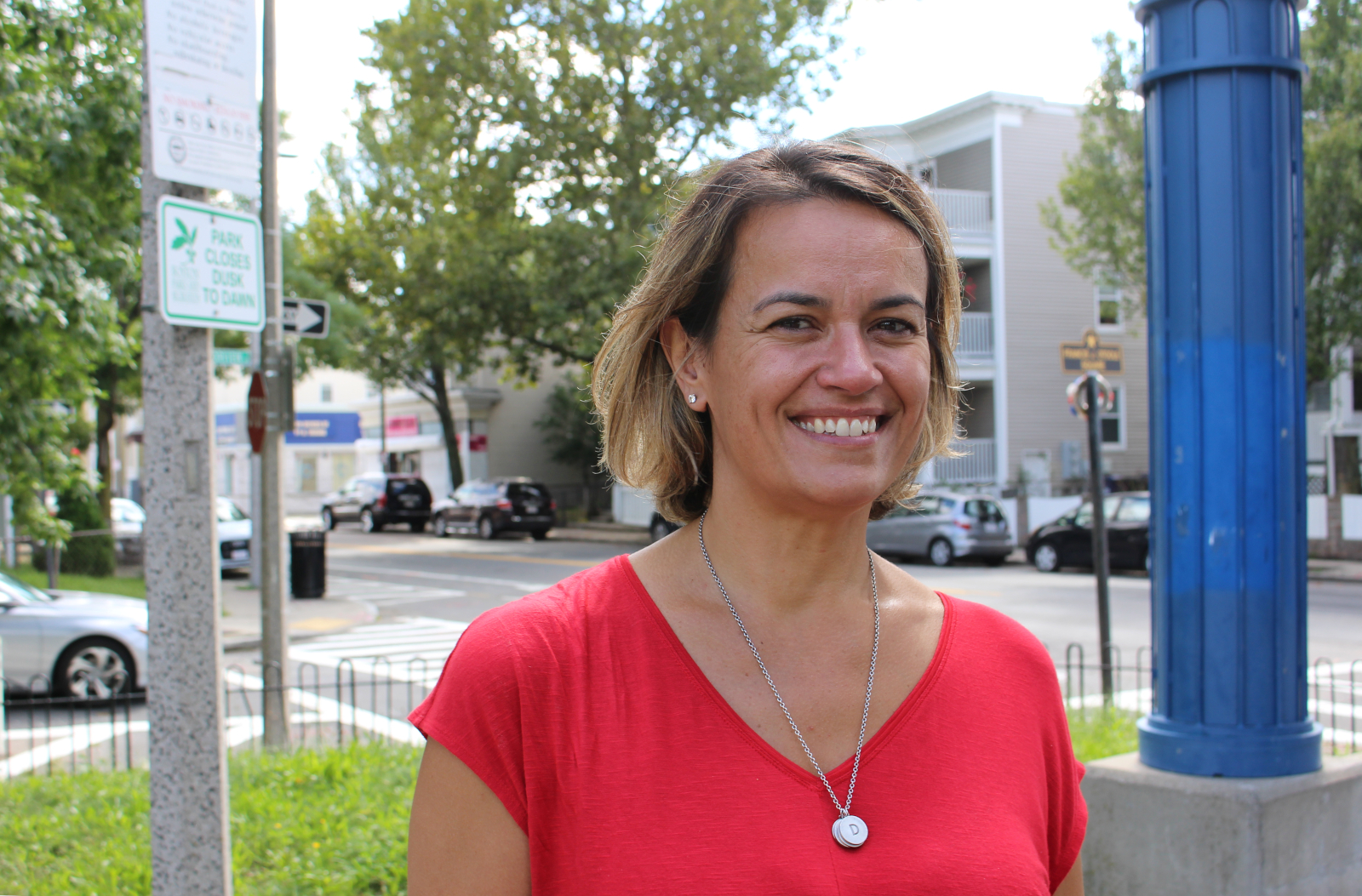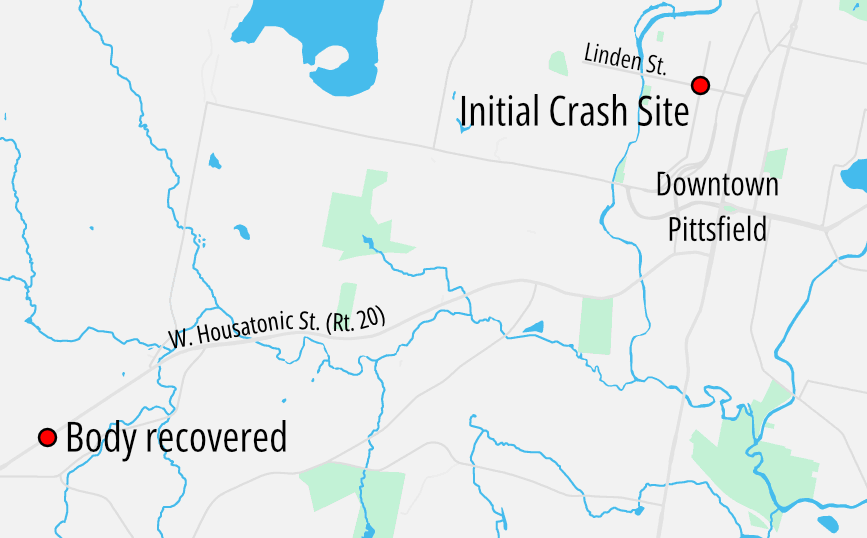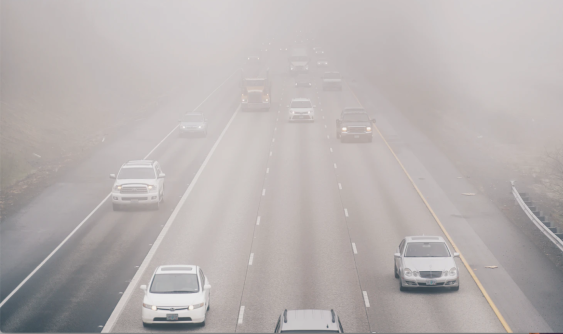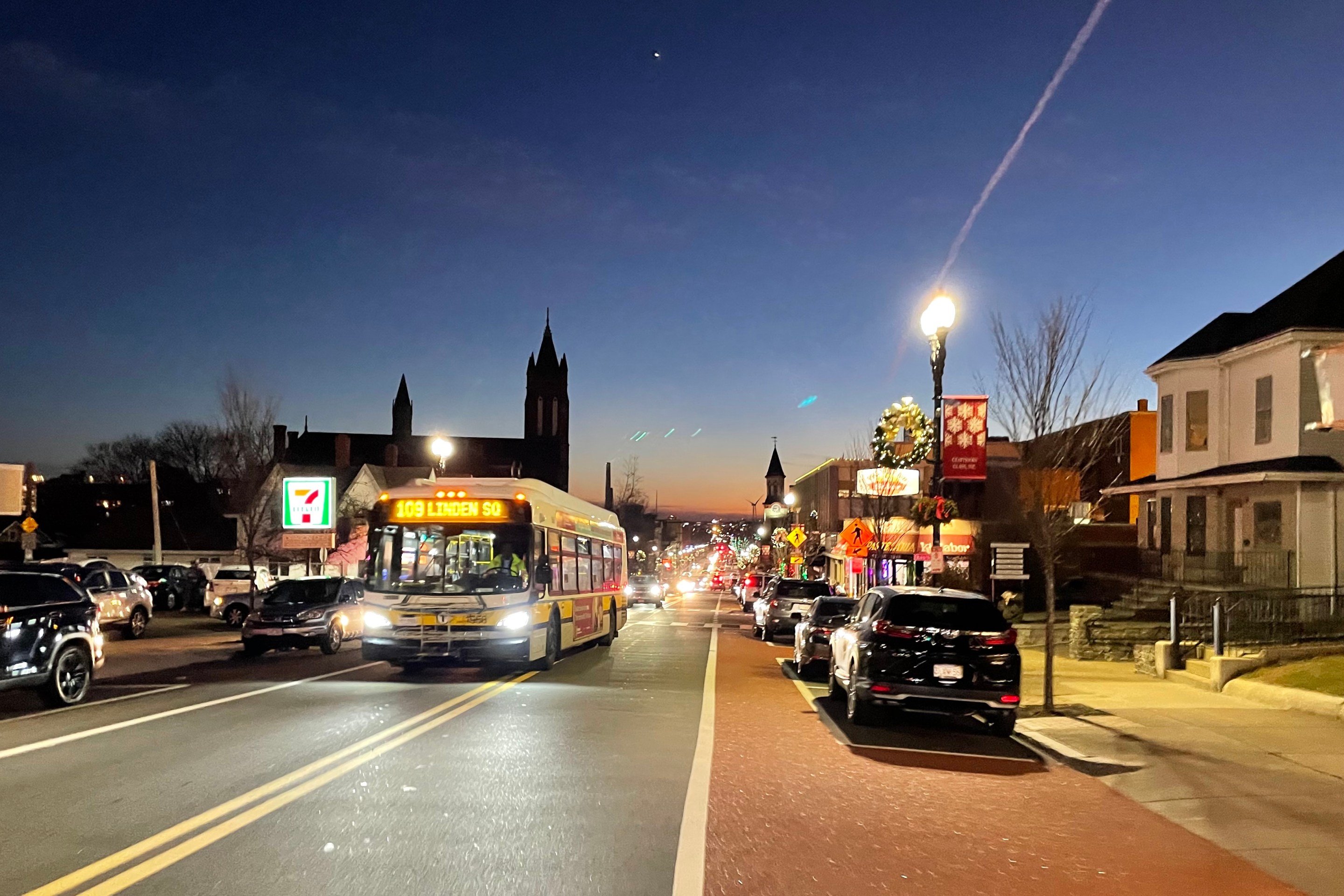This summer, StreetsblogMASS has invited each of the major contenders in Boston’s mayoral race to join us for a walk, bike ride, or transit trip that’s personally meaningful to them and have a conversation about their ideas for what Boston’s next mayor should do to address the challenges of safe mobility, climate change, and affordable housing.
A preliminary election on Tuesday, Sept. 14 will eliminate all but two candidates from the race. Voters will then choose between the two finalists in the general election on Tuesday, Nov. 2. Boston residents can find out more about how and where to vote here.
City Councilor Annissa Essaibi George met me last week for a walk down Dorchester Avenue in her home neighborhood, strolling from her campaign office in the building where she was raised to the Stitch House, her knitting shop near Columbia Road.
The following is a transcript of our conversation, edited for length and clarity.
Tell us a little bit about this walk we're taking?
This is generally a walk I do first in the opposite direction… it's between my mother's house, the house I grew up in, and the house where I now raise my family. Along the way are a couple of spots that have been important in my life. There’s my grandfather's store, that's now my campaign office, and this is the Ryan Playground where I played in as a little kid.
Actually, in my early 20s, a number of us in the neighborhood came together to re-engage youth in the playground... it was a place where there had been a lot of public drinking. And so we did some really basic programming here and worked with the city eventually to redesign it; I think it's been done over twice since then... But from here, you can see the house I grew up in, which was a good thing for my mother, and I had, as a kid, one of my closer friends lived on this street, and I had other close friends on the next street over.
I generally almost always drive. This is a walk I do regularly now, just because the office is here, my mother's house and my sister's here. But, you know, transporting four kids around, it's all by car.
But they do get around on their own because I can't literally drive them everywhere they want to be. So they do a lot of biking, and one of them does a lot of rollerblading… and then they all take the T. And myself, when I was growing up here, in high school and college, I took the T.
That's a real privilege. I don't think many kids can have that kind of independence to move around the city.
It’s such freedom for them.
How does this walk illuminate or inform your transportation platform as a mayoral candidate?
For me, it's a couple of things: one, neighborhoods should be more walkable. They should be safe. We actually had, in this crosswalk here, a longtime neighbor was killed here, crossing the street.
Dorchester Ave. is obviously a main thoroughfare, so it's very heavy traffic. But you've got small businesses, there’s a certain need for parking, there’s a certain need for safer pedestrian and bicycle access. And Dorchester Ave. almost runs parallel with the Red Line, and there’s the 18 bus route. So making sure that all those things are accessible and safe to come and go.
Speaking of the T, there's been a lot of talk this year about free fares. I was wondering if you could share your thoughts on that idea, and Mayor Janey’s free 28 pilot program.
I like the idea. Still, the system is so under-invested in, I worry about what that may do to the quality of service. We've got to make sure that we've got the dollars to continue to invest in the T, and, you know, add service, add late night buses.
I think it makes sense to look at some of those bus lines, like the 28, and make some of those free, because we know how important it is to connect underserved communities to economic job centers.
Again, I'm much more practical in my approach to the work. I love the idea and the concept, but for us to have these public goods, they have to be good. And I don't think that even less funding for the T will be the answer.
The T is a state agency, and City Hall doesn't have a whole lot of influence. So how can Boston’s mayor make the T better?
We need city representation on the board of directors. I think that's really important. The city (council) has been advocating for that, and working with our state delegation in the legislature.
In Boston, the T is the economic engine. When we think about traffic congestion, and the environmental impacts of more and more cars on the road, we need to have the T be more reliable and user friendly and responsive to the needs of riders. And more people will ride.
So it has to be a greater partnership. Members of the Boston delegation see how important it is. A number of them are advocating for that, and certainly as Mayor, I'll use my capacity and my position to work in partnership with the State House.
We do spend a $90 million assessment from the city for the use of the T, and then when we think about improved bus routes, dedicated bus lanes – those are things that we've been able to do in partnership with the T, and we can do more of that.
[here, we arrived at the Dorchester Ave. intersection with Columbia Road, a 5-lane crossing]
The other day at City Hall, we did a walk with Alex Gray who’s an at-large candidate who’s blind, and one of the challenges was the crossing light wasn’t nearly long enough to get all the way across.
And we think about this (crosswalk), this is actually a pretty long light. But if you're elderly, if you’re in a wheelchair, or even if you’re with a baby carriage or a couple of kids, this could be much more difficult.
I actually think back about how with my boys, we used to take this walk to daycare in the morning.
Yeah, this would be an intense street to cross with little kids.
A lot of people point out that the city controls the streets that a lot of MBTA buses run on, and the Walsh administration got a lot of new bus lane projects going, and a lot of programs to make streets safer. If you were elected, do you think you'd more or less leave his streets cabinet intact? Or would you make major changes there?
We’d definitely take a look at everything. We'll certainly keep best practices, there's no need to reinvent the wheel if we've got things that are working in that cabinet. And I appreciate the attention to detail, you know, we had the Chief of Streets and I think that just the title alone sends the message that this is important.
[at this point, we arrived at Essaibi George’s knitting shop, the Stitch House, and conducted the rest of our conversation indoors.]
In terms of taking a fresh look, as you mentioned, and changes that you'd like to see in the Boston Transportation Department, what are some ideas of some new directions that you’d take the city?
We really have to engage our city’s neighborhoods, and residents in those neighborhoods to understand the changes they need.
I'd like raised crosswalks. I’m like a broken record when it comes to all of our transportation hearings on the city council: raised crosswalks, especially at our playgrounds, our elementary schools, and and our senior centers. We think about our littlest people, maybe our more vulnerable residents who are slower moving.
We've got to make it safer for pedestrians to get around across the street to go from school to the playground. All of these pieces are really important to me.
But we do have to listen to our city's residents. What are the things that they want to see? When we’re speaking specifically about our roads, how do they want to see those improved? Working with some of our small business districts, whether it's, you know, a formal Main Streets program or a little business community like this, what do we want to do with on-street parking? What do we want to see around, whether it's Bluebikes stations, or safe places to lock your your bicycle? What do we want to see around light signalization? Are there places where we need greater enforcement around speed? It's all of those components.
Along this stretch of Dorchester Ave., there's a lot of bicycle traffic that comes in from downtown here, and early in the morning, when I was walking with the kids or now with the dog, from Columbia road to Mass. Ave. you would see lots of people biking early in the morning, wearing scrubs, so it’s telling who they are, where they're going to work at the hospitals.
So we've got to be responsive to all those needs. But the only way to find out what those needs are is to go to the community.
So talking about Safe Routes to School and safety in general, there was a pretty contentious project in West Roxbury, where the Walsh administration proposed narrowing Centre Street from four lanes to two lanes, and adding protected bike lanes.
A lot of neighbors really wanted safety improvements to happen quickly after a driver killed Marilyn Wentworth there in 2019. But there was also a very vocal group who's dead set against it, as I'm sure you know, and it's been reported that you sided with the opponents.
So I think that I've come down actually a little bit in the middle. We need to make some improvements on Centre Street, whether it's the daylighting, or those push-button crosswalk lights, or better crosswalks and raised crosswalks at a few of those intersections.
But I also think there needed to be greater conversation with some of the business owners in that community. That's a very congested small business district. We need to look at the turning lanes, that's really important.
Yes, we need to look at pedestrian safety, because there’s so much foot traffic along Centre Street. When we think about some of our small business districts, that's an example of one. To then add in protected bike lane really does impact that small business district in particular, but we also have to look at the impacts on side street traffic. And we've seen with the growing use of Waze, for example, how that pushes traffic onto side streets that aren't accustomed to that heavy traffic...
I think we, you know, responded to a crisis and a tragedy for sure. We had that death, and more recently, we had a motorcycle driver die on that same street. We need to make some improvements. But we can't just simply – we see the challenges now on American Legion and Cummings Highway, with shrinking those roads, I think there's some unintended consequences that we didn't fully vet out.
The Walsh administration also set a goal – both for climate change and for transportation policy in general, because we've got terrible congestion – to reduce the amount of car traffic in the city by half by 2030.
And then Covid hit.
But car traffic has definitely bounced back.
The car traffic barely went away. Yeah, we have to reduce car car traffic, but we need a better partner in the T. We've got to improve the quality of service and the amount of service as it relates to the T, if we're going to increase ridership.
I'd like to reduce traffic. If I could lay out a real plan to reduce congestion across our city, and on the roads coming in and out of our city, we would win this race tomorrow.
Unfortunately, traffic is a reality we're going to have to deal with. We just need to find ways to improve it. Improving the T, dealing with Covid and the apprehension and the fear people have about using public transit – that's very real. People will not get on the T because of COVID.
And then we also see people don't feel confident that the T is going to get them to work and get them home from work, because we're seeing derailments, and just all of a sudden, things stopped working. And that's, you know, very inefficient.
Again, the T is a state agency. So what can the city do?
We can work in partnership. Along the Green Line, for example, light signalization is a real opportunity for us, and we can look for opportunities for more dedicated bus lanes.
Beyond that, the rest of it is just pure advocacy. I think we should have someone affiliated with the MBTA in our city's transportation office. And I would hope that they'd welcome somebody from our office up there so that we're specifically working hand in hand on improving the T.
There's a huge need for housing in the city. We just had the new Census show us that Boston grew a lot over the past decade, but the city has not built enough housing for all the people who want to live here – especially transit-accessible housing. How would your administration tackle that problem?
We have to continue to build more housing. We also need to make sure that we're building the type of housing our city's residents want: family sized housing, and opportunities for seniors to downsize and live in the community that they call home.
And then also to create greater opportunities for ownership. When we think about a family's stability, for children and for the community, ownership is central to that. But it also creates a different investment in that community. Not that renters aren't invested, but ownership – we had a meeting at my house recently, and a neighbor of mine just said, you know, my family has been here for generations, and we have never owned our own home. And I want that opportunity.
And so what policies would you pursue to make that happen?
Invest in downpayment assistance. That's priority number one for me, especially around the ownership piece. And technical assistance, you know, certainly for first-time and first-generation homebuyers, assistance in navigating the system to become a homeowner. It just doesn't magically happen. There's a certain skill set there. And that can go all the way back to teaching financial literacy to young people in schools.
Do you have ideas for zoning reform?
Yeah, we’ve got to rezone the city, you know, certainly make sure that it is easier to interface with the city and do business with the city. Whether it's through the ZBA, the BPDA or just picking up a permit at 1010 Mass. Ave., we've got to make that process more streamlined, more user friendly.
We've learned some lessons over the course of Covid that we can do some of this online. We can track, you know, a project’s progress, so both a homeowner or the property owner or the resident in the neighborhood can see the progress of a project at any moment.
At the Council, we've done some work around fast-tracking affordable 100-percent affordable projects. Yes. Because that's really important, as well, as we look for greater affordability in this city.
Before we wrap up, I do want to give you a chance to address the Boston Globe story that came out recently that described your office's involvement in opposing a housing development that was right next door to one of your husband's developments.
So my office, we've been very clear about not participating in any of my husband's projects. There’s a very bright line. We're not in the room. And the few times he's been before the ZBA (Zoning Board of Appeals), or the BPDA, we've stepped out of the room and not engaged in any of those conversations.
That project in particular was a project that didn't reference my husband (in filings). And we followed our standard procedure: worked with community organizations, civic groups, residents, the local elected officials, and took a position of opposition, as a whole host of individuals did.
As soon as (my husband’s interest in the project) was brought to our attention. I reached out to an ethics attorney who has filed with the state Ethics Commission and shared our protocol, what the process is that we follow as an office, to get feedback from them on what steps we need to do to ensure that that doesn't happen again.
But again, my husband's name wasn't mentioned. His project wasn't referenced. He wasn't present, or on the docket. There's no sort of direct reference to him at all.
More broadly, on a more philosophical level, should politicians be getting involved in opposing individual housing developments in a city that has a desperate need for more homes?
So as elected officials, we work with community members, and we work with those that are building housing in our city to make sure that community members and residents are heard, so there is a thoughtful and thorough community process that developers are engaging in, in our neighborhoods with our city's residents.
I think that's an important role for elected officials to participate in. We've got to be able to work with neighbors, and work with residents. As the city continues to grow, we will continue to grow.






